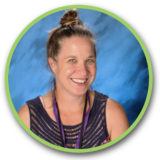Our goal is to address the needs of each and every student.
Ms. Franzen Mental Health Specialist Mr. Hugo focus is with students 6th – 9th grade Ms. Waterman focus is with students 10th – 12th grade
School counselors encourage the following mindsets for all students:
- Belief in development to whole self, including a healthy balance of mental, social/emotional and physical well-being.
- Self-confidence in ability to succeed.
- Sense of belonging in the school environment.
- Understanding that post-secondary education and life-long learning are necessary for long term career success.
- Belief in using abilities to their fullest to achieve high-quality results and outcomes.
- Positive attitude toward work and learning
Are you having difficulties with a classmate? Are you a family member who wants to help your iTech student resolve a conflict at school? Then complete the:
Vancouver iTech Preparatory Program Requirements
| Subject | Credits |
|---|---|
| English | 4.0 credits |
| Mathematics | 4.0 credits |
| Social Studies | 4.0 credits total |
| AP Comparative Govt. | 1.0 credit |
| AP US History | 1.0 credit |
| AP Human Geography | 1.0 credit |
| Elective | 1.0 credit |
| Science | 4.0 credits total |
| Biology | 1.0 credit |
| Physics | 1.0 credit |
| Chemistry | 1.0 credit |
| Elective | 1.0 credit |
| Spanish | 4.0 credits |
| Art | 1.0 credit |
| Career and Technical Education | 1.0 credit |
| Physical Education | 1.5 credits |
| Health | 0.5 credit |
| Electives (4 must be STEM related) | 8.0 credits |
| Total credits required | 32 credits |
6-12 grade college and career readiness goals
1. College Aspirations
Goal: Build a college-going culture based on early college awareness by nurturing in students the confidence to aspire to college and the resilience to overcome challenges along the way. Maintain high expectations by providing adequate supports, building social capital and conveying the conviction that all students can succeed in college.
2. Academic Planning for College and Career Readiness
Goal: Advance students’ planning, preparation, participation and performance in a rigorous academic program that connects to their college and career aspirations and goals.
3. Enrichment and Extracurricular Engagement
Goal: Ensure equitable exposure to a wide range of extracurricular and enrichment opportunities that build leadership, nurture talents and interests, and increase engagement with school.
4. College and Career Exploration and Selection Processes
Goal: Provide early and ongoing exposure to experiences and information necessary to make informed decisions when selecting a college or career that connects to academic preparation and future aspirations.
5. College and Career Assessments
Goal: Promote preparation, participation and performance in college and career assessments by all students.
6. College Affordability Planning
Goal: Provide students and families with comprehensive information about college costs, options for paying for college, and the financial aid and scholarship processes and eligibility requirements, so they are able to plan for and afford a college education.
7. College and Career Admission Processes
Goal: Ensure that students and families have an early and ongoing understanding of the college and career application and admission processes so they can find the postsecondary options that are the best fit with their aspirations and interests.
8. Transition from High School Graduation to College Enrollment
Goal: Connect students to school and community resources to help the students overcome barriers and ensure the successful transition from high school to college
Source: NOSCA (National Office for School Counselor Advocacy)
Scholarships
- Subscribe to get Remind 101 text messages or emails for scholarship updates and deadlines
- TheWashboard
- WA State Universities Financial Aid Contact
- Ungio
- Fastweb
- BigFuture
- Scholarship 360
- GreenLight
College Score Card
Career Cruising
Washington Community and Technical College Information
Washington State Apprenticeship Programs
AmeriCorps
The Common Application
SAT/ACT
- SAT Practice Site
- Info on the new SAT Test
- Most colleges and universities REQUIRE a college entrance exam score for admissions. Many students take the SAT and/or ACT during the spring of their junior and/or fall of senior year of high school. Most students improve their scores the second time they take the SAT or ACT. College entrance exam scores are just one of many factors that colleges consider when making their admission decisions. High school grades are also very important. In fact, the combination of high school grades and college entrance exam scores are the best predictor of your academic success in college.
- What is the difference between the two tests?
- The SAT is more of an aptitude test, testing reasoning and verbal abilities in math, reading and writing. The ACT is an achievement test, measuring what a student has learned in school. The ACT has up to 5 components: English, Mathematics, Reading, Science, and an optional Writing Test. You are able to take both tests but that is not required. Do your research and see which one will best fit your learning style.
- Register for the SAT Create an account and pick a testing date and location. iTech school code: 481493
- Register for the ACT Create an account and pick a testing date and location. iTech school code: 481493
Letter of Recommendation Requests
Oregon residency information
Western Undergraduate Exchange Program
Enrollment opportunities in college courses
STEP 1: Qualifying for Consideration
To be considered for Early College enrollment with Clark College and/or WSUV:
- Students must be on track to graduate on time from VPS and iTech Preparatory (including having passed appropriate grade level state testing requirements),
- Maintain a 3.0 cumulative GPA in all high school classes,
- Be a 10th grade student (9th under unique circumstances) to take classes through Clark College or
- Be 16 years of age by the time classes begin for the semester to take classes through Washington State University Vancouver (WSUV),
- Pass the COMPASS tests with qualifying scores.
STEP 2: Qualifying for Placement
The selection rubric is used when screening students for consideration under this program. Students will be ranked based on their total score for all areas and allotted seats in classes based on their ranking. Although a student may have demonstrated their readiness for college level work, the number of seats in any class may be limited resulting in some students not receiving placement in a class for that quarter or semester. Note: qualifying sophomore (or freshmen) students are limited to one class a quarter at Clark or one class a semester at WSUV. Junior and Senior students may take more than one class through Clark and/or WSUV. All students must earn a “B or Better” in their college class(es) to be eligible to continue into the next quarter or semester college class through Vancouver iTech Preparatory.
STEP 3: Determining Placement
If a student qualifies for Early College, the following also applies in determination of placement.
A number of factors influence the ability of our students to take college courses through this program. Those factors include, but are not limited to:
- course availability (not all courses are open to this program),
- the seats allotted for our students as determined by the college or university,
- the time of day the courses are offered (college courses may NOT overlap high school classes or require missing all or part of a class at either institution), and
- the progression of the student toward meeting all VPS graduation and iTech Preparatory program requirements (transcript review),
- maintaining a 3.0 cumulative GPA in all college classes.
Prior to each academic year, Clark and WSUV in consultation with VPS staff and administrators will select the courses that are available for enrollment of iTech Preparatory students. Some courses may contain topics or include material intended for adults. Clark and WSUV will not undertake either monitoring of activities and behavior or provision of parental controls as part of the learning program.
VPS does not guarantee, in any given quarter or semester, to contract for services with Clark College and/or WSUV.
Tuition for classes taken under contract for services will be covered. All other expenses will be the responsibility of the student and the student’s family. Other expenses include, but are not limited to, the COMPASS test fee, a registration fee, a matriculation fee, books, class fees, and lab fees.
*If college classes fall outside of the school day, school district calendar for student attendance days, or take place off campus, transportation to and from the classes is the responsibility of the parent or guardian. Students are required to attend all college classes even if they are outside of the school day or district calendar for student attendance days.
Note: The Early College Model has similarities to the Running Start Model but has restrictions on placement and grade maintenance expectations not found in the Running Start Model. Students who would like to participate in the Running Start Model must return to their resident school to do so.
Selection rubric | Early college overview | 11th-12th grade early college information
VANCOUVER ITECH PREPARATORY SENIOR TIMELINE Coming Soon
Counseling Department Program Values
iTech Preparatory comprehensive guidance counseling program is devoted to:
- Address the needs of each and every student
- Develop school wide programs based upon the needs of each student, including developmental, preventative, and educative services.
- Provide accountability and continuous improvement through annual review of student progress, program effectiveness and professional growth.
- Include appropriate professional development for all staff to continually improve services.
- Depend upon the support and collaboration of administrators, teachers, other school personnel, students, and the community
Guidance and counseling is not a service offered by one person or department but a program coordinated with all educators in the building.
Counseling Department Mission Statement
Our mission as the school counselors at Vancouver iTech Preparatory is to advocate, empower, and promote lifelong learning in all students. Our counseling program is designed to assist in the academic, career, and personal/social growth and community involvement of each student. Through collaboration with families, staff, and students, we strive to support all students in their academic development by valuing their individual uniqueness, multicultural diversity, and promoting maximum development of each student’s potential.
The ultimate goal of this program is that each student will graduate with the personal, academic, career-related skills and knowledge to be able to make self-directed, realistic, and responsible decisions in an increasingly complex world.





